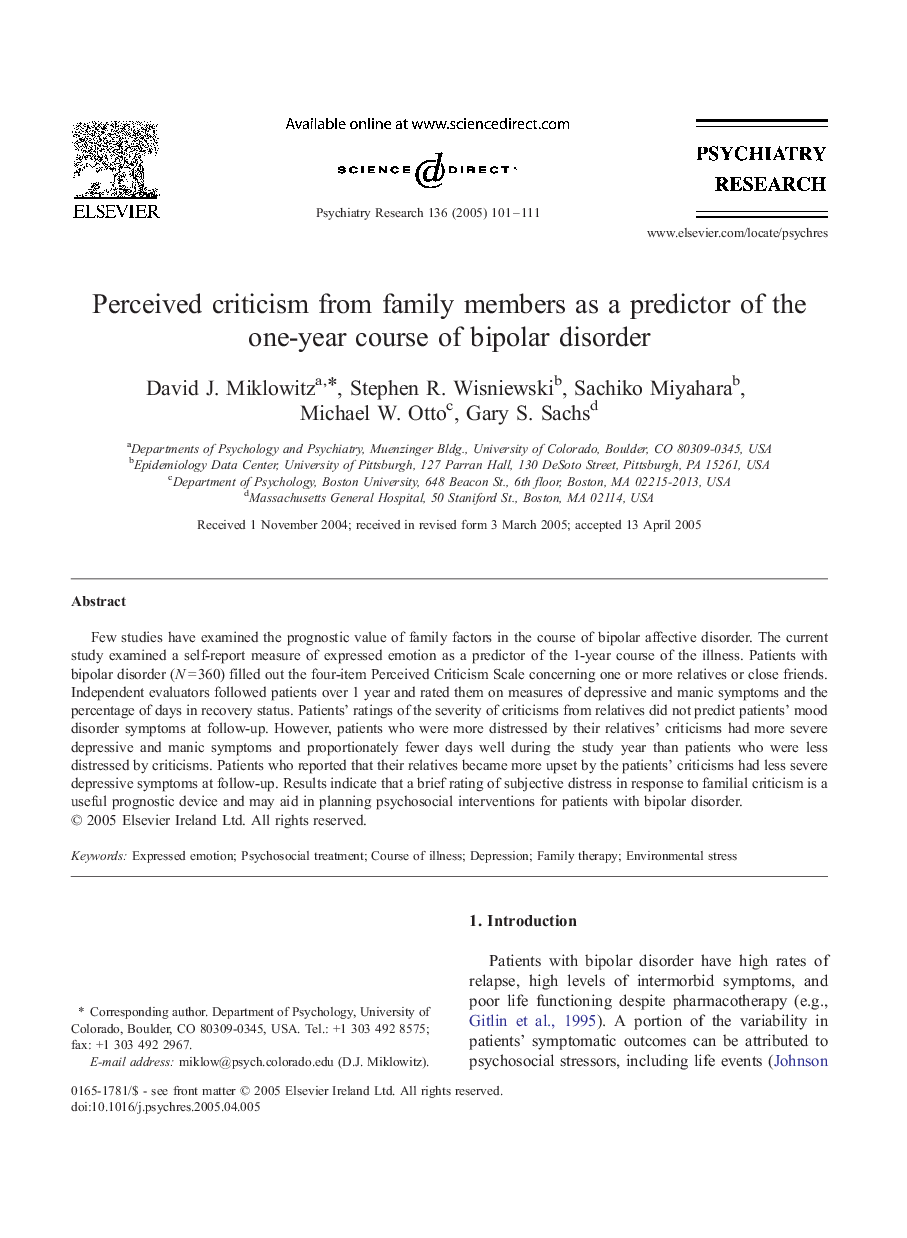| Article ID | Journal | Published Year | Pages | File Type |
|---|---|---|---|---|
| 9645970 | Psychiatry Research | 2005 | 11 Pages |
Abstract
Few studies have examined the prognostic value of family factors in the course of bipolar affective disorder. The current study examined a self-report measure of expressed emotion as a predictor of the 1-year course of the illness. Patients with bipolar disorder (NÂ =Â 360) filled out the four-item Perceived Criticism Scale concerning one or more relatives or close friends. Independent evaluators followed patients over 1 year and rated them on measures of depressive and manic symptoms and the percentage of days in recovery status. Patients' ratings of the severity of criticisms from relatives did not predict patients' mood disorder symptoms at follow-up. However, patients who were more distressed by their relatives' criticisms had more severe depressive and manic symptoms and proportionately fewer days well during the study year than patients who were less distressed by criticisms. Patients who reported that their relatives became more upset by the patients' criticisms had less severe depressive symptoms at follow-up. Results indicate that a brief rating of subjective distress in response to familial criticism is a useful prognostic device and may aid in planning psychosocial interventions for patients with bipolar disorder.
Keywords
Related Topics
Life Sciences
Neuroscience
Biological Psychiatry
Authors
David J. Miklowitz, Stephen R. Wisniewski, Sachiko Miyahara, Michael W. Otto, Gary S. Sachs,
